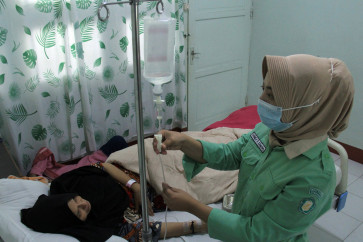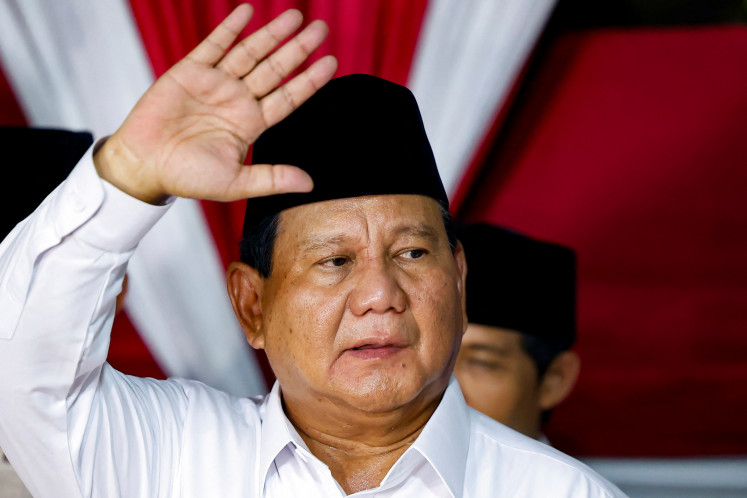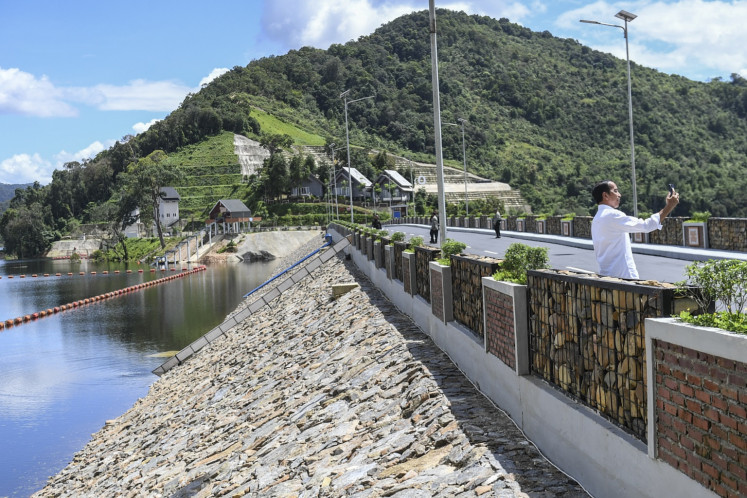Little fish can help big one
Wiry and wrinkled, Pak Jamili is an unusual fisherman
Change Size

Wiry and wrinkled, Pak Jamili is an unusual fisherman. He’s determined to carefully conserve the fishing grounds that he and his family depend upon.
From the beach in front of his simple, stilted wooden house at the northern tip of the Malaysian state of Sabah, he is intently focused on warding off those keen to plunder the ocean and reef at his doorstep. Pak Jamili is a minnow in the world of fisheries management, but he has a lot to teach the big fish who just gathered Manado, Sulawesi, for the first World Oceans Conference.
Fish are having a bad time. The cod famed in traditional English fish and chips is so threatened that it is listed as a species to avoid buying by environmental groups like Seafood Watch. Many other species share cod’s fate.
According to the journal Science, all species of currently caught wild seafood are heading to collapse. Eighty percent of fish stocks are fully or overexploited notes the United Nations. Government efforts to address these declines are lamentable.
Industrial fishing fleets carry much of the blame. But in Indonesia, Malaysia, the Philippines,
and beyond, once thriving coastal fisheries have also been ransacked by local fishing companies and communities.
Thousands of fisherfolk continue to use cyanide to stun fish for the live reef fish trade, killing precious coral reefs in the process. Dynamite fishing is widely practiced, blowing fish out of the water for a quick win, while most of what’s killed sinks to the bottom and goes to waste.
Fisheries in Indonesia alone employ over two million people. Bad management of this resource is not only an environmental disaster, but also a personal one for these poor families, who survive and put their children through school with income from fishing.
These global and local fishery fiasco highlight the importance of the case of Pak Jamili. With his strapping sons he patrols the waters around his home urging others to stop poisoning and blowing up the reefs.
Fishermen from as far away as the Philippines turn up day and night with illegal cyanide and homemade bombs. He stresses, “They can use hooks and line if they want to, but no bombs, no poison.”
The response can turn nasty. Pak Jamili has had death threats and has to watch his back in the nearby fish market in Kudat town where he sells his catch. His wife is afraid, but his sons are determined to continue fighting for conservation.
They know that their future depends on it too.
The local environmental group, WWF Malaysia, is helping Jamili family. They’ve trained him to document law breaking and made him an honorary nature warden.
President Yudhoyono is doing a good job of corralling leaders from across Southeast Asia, and is pledging to improve marine conservation and fisheries management.
Unfortunately, Jamili won’t be at the powwow to have his voice heard. He and others like him need to be recognized by their governments as the owners and managers of the fish and reefs that they are protecting. Recognition of such rights would provide a clear incentive to protect local fisheries and to keep out those intent on a resource grab.
Law enforcement by government should be escalated, but it can never effectively patrol the millions of square kilometers required. Only local people can do that, with government back up when offenders are apprehended.
A government sanctioned community fish watch is the key to giving local people pride in managing and protecting fish resources. Only then can we rekindle hope that those resources will be there for the children of the millions of families that depend upon them.
The writer is a tropical ecologist and vice president for Asia with the US-based environmental group Rare.









